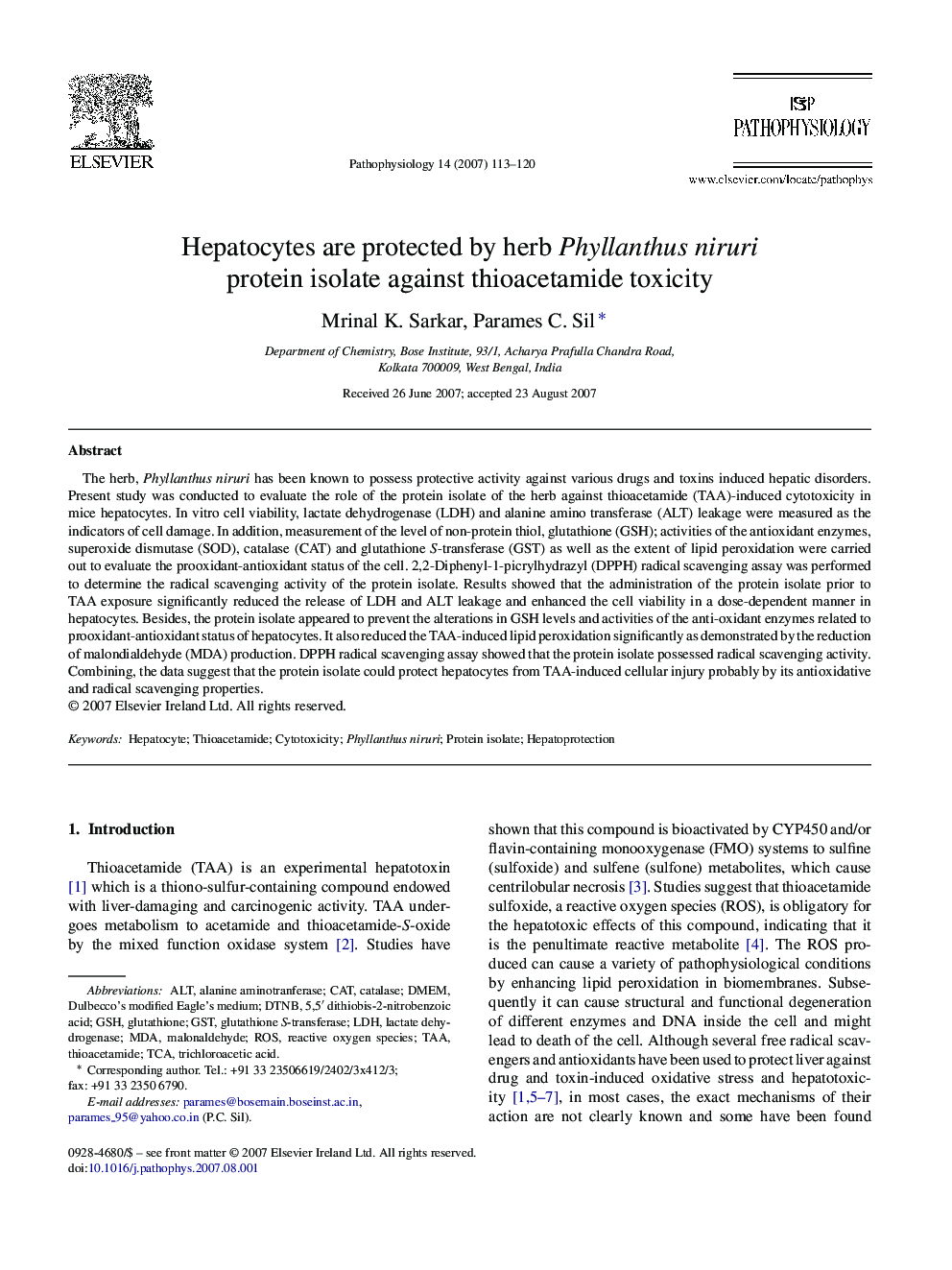| Article ID | Journal | Published Year | Pages | File Type |
|---|---|---|---|---|
| 4137453 | Pathophysiology | 2007 | 8 Pages |
The herb, Phyllanthus niruri has been known to possess protective activity against various drugs and toxins induced hepatic disorders. Present study was conducted to evaluate the role of the protein isolate of the herb against thioacetamide (TAA)-induced cytotoxicity in mice hepatocytes. In vitro cell viability, lactate dehydrogenase (LDH) and alanine amino transferase (ALT) leakage were measured as the indicators of cell damage. In addition, measurement of the level of non-protein thiol, glutathione (GSH); activities of the antioxidant enzymes, superoxide dismutase (SOD), catalase (CAT) and glutathione S-transferase (GST) as well as the extent of lipid peroxidation were carried out to evaluate the prooxidant-antioxidant status of the cell. 2,2-Diphenyl-1-picrylhydrazyl (DPPH) radical scavenging assay was performed to determine the radical scavenging activity of the protein isolate. Results showed that the administration of the protein isolate prior to TAA exposure significantly reduced the release of LDH and ALT leakage and enhanced the cell viability in a dose-dependent manner in hepatocytes. Besides, the protein isolate appeared to prevent the alterations in GSH levels and activities of the anti-oxidant enzymes related to prooxidant-antioxidant status of hepatocytes. It also reduced the TAA-induced lipid peroxidation significantly as demonstrated by the reduction of malondialdehyde (MDA) production. DPPH radical scavenging assay showed that the protein isolate possessed radical scavenging activity. Combining, the data suggest that the protein isolate could protect hepatocytes from TAA-induced cellular injury probably by its antioxidative and radical scavenging properties.
